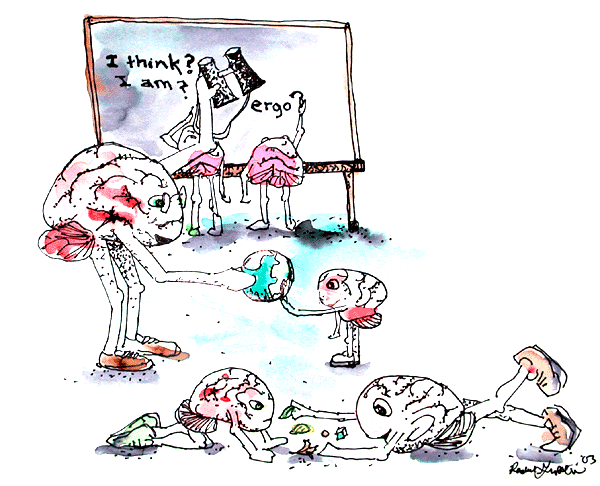Where do we get our religious
concepts from? Why do some concepts, such as the existence of one God who
knows all, the existence of souls, of an afterlife, of karma, and so forth
pervade throughout the spiritual lives of very different people? Why do these
concepts persist for thousands of years? How do these concepts gain a
following? In Religion Explained: The Evolutionary Origins of Religious
Thought anthropologist Pascal Boyer
attempts to answer these questions in terms of what we know about cognitive
psychology and evolutionary biology (1). Where once it was believed that these
were silly questions to ask, Boyer believes that we now have the tools to treat

 © Serendip® 1994 - All rights reserved. Privacy Policy
© Serendip® 1994 - All rights reserved. Privacy Policy


